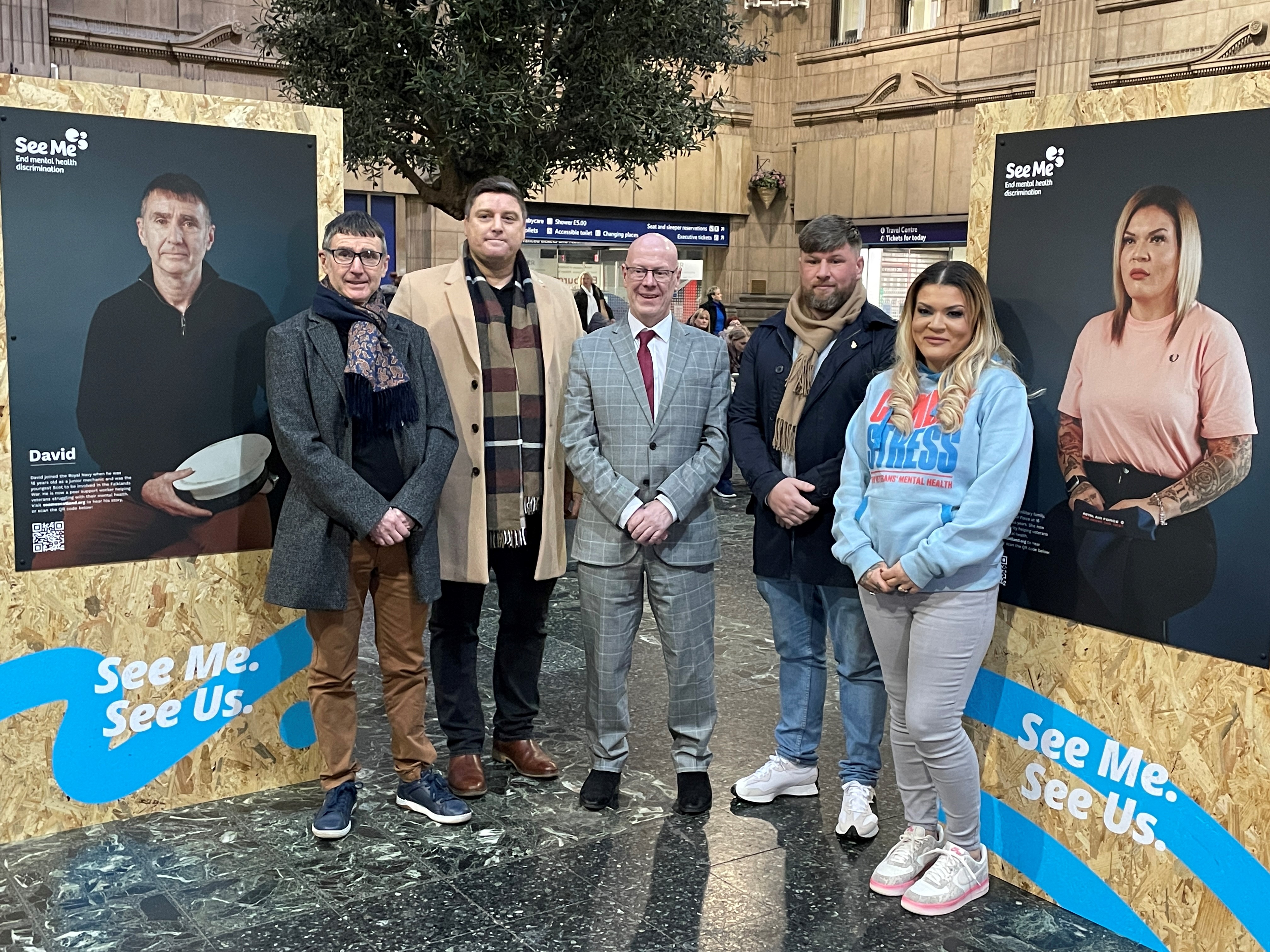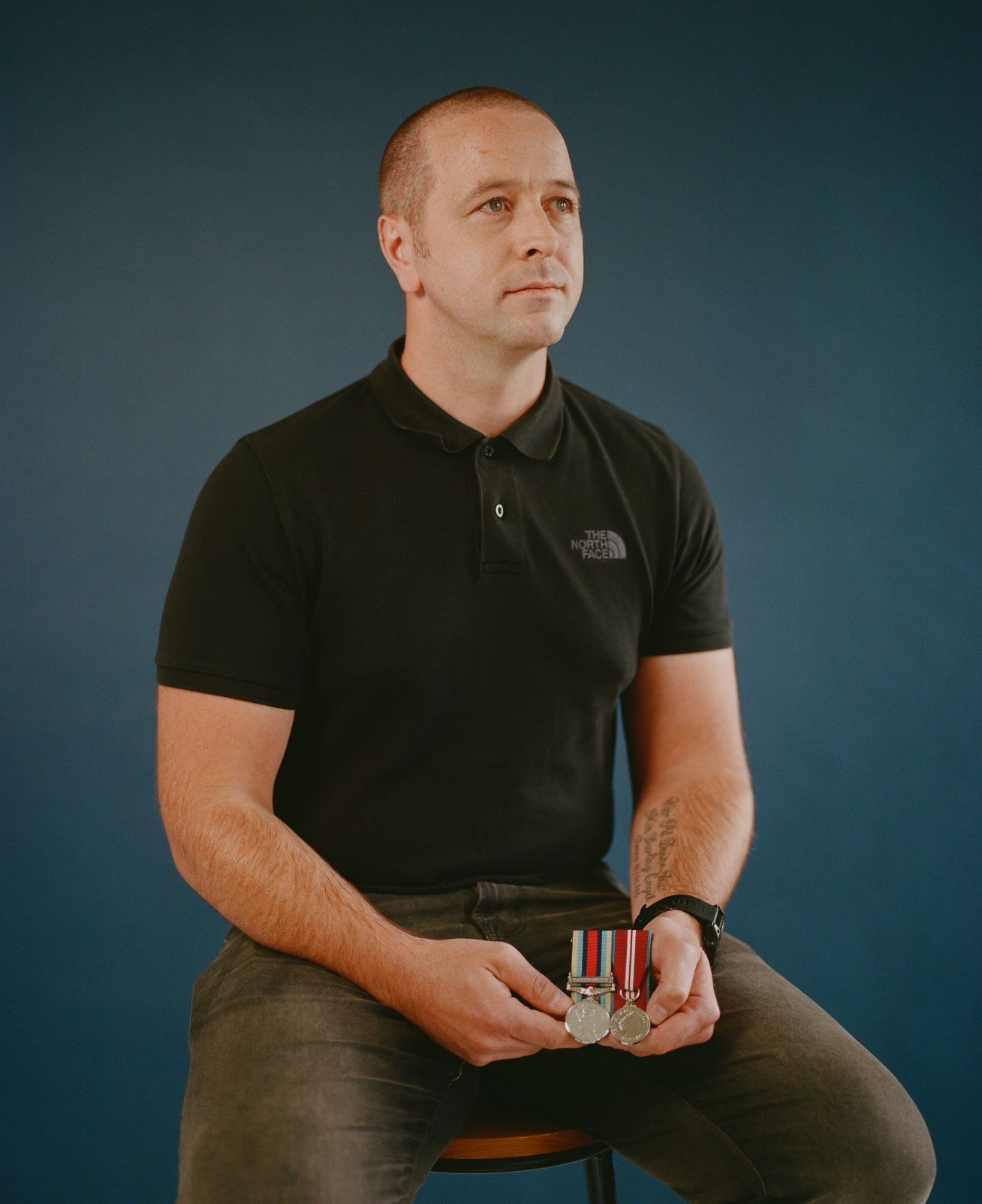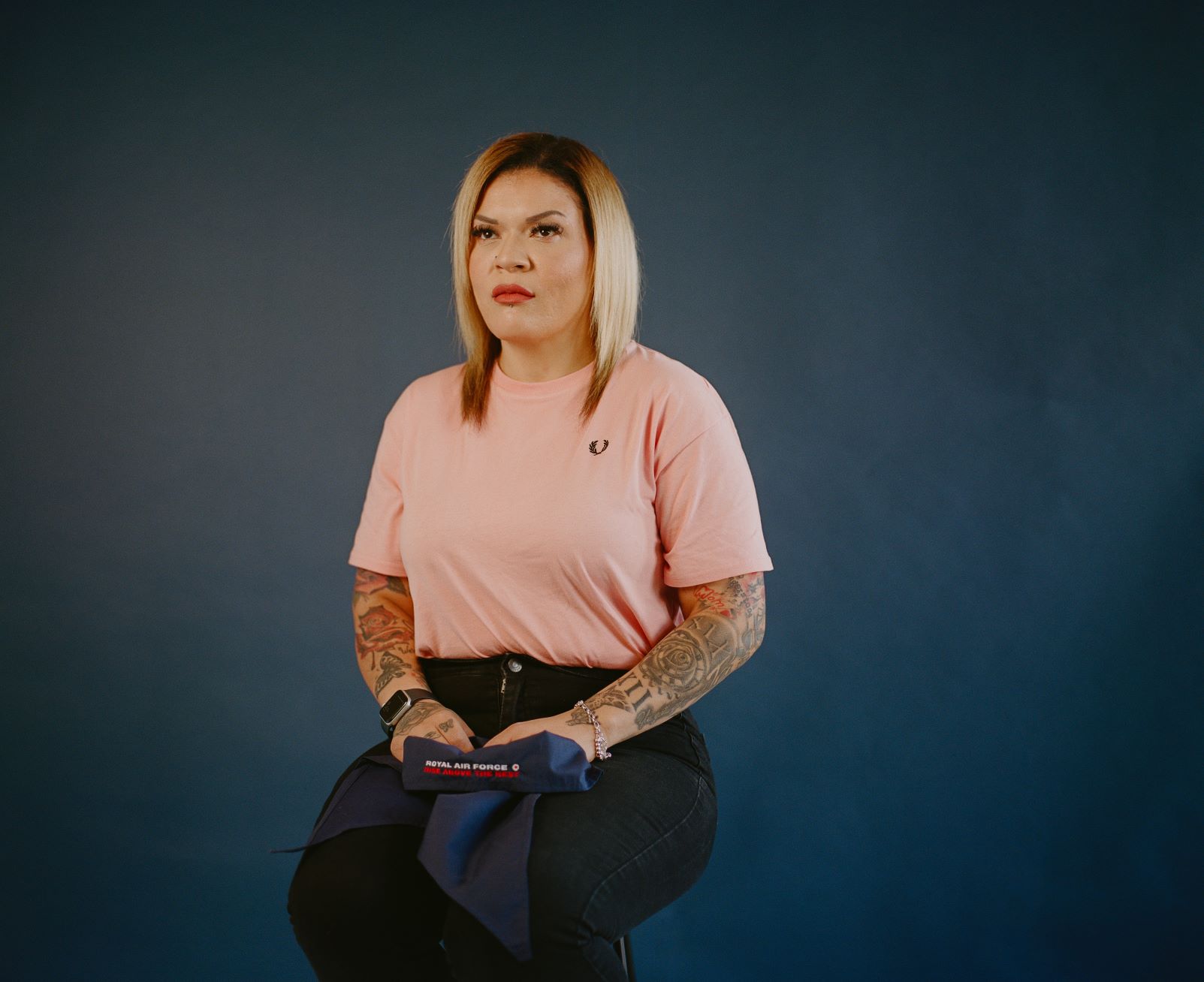
Veterans in Scotland encouraged to open up about mental health in new See Me campaign

Armed Forces veterans in Scotland are being encouraged to speak up about mental health and get help when they need it as part of a new nationwide campaign.
Charity See Me Scotland has launched a programme aimed at ending stigma and discrimination surrounding mental health.
It has been working with 30 veterans across Scotland to create The Guard campaign.
On average, the charity says, it can take more than a decade for a veteran to ask for the support they need with their mental health.
Not wanting people to know what they are going through, and thinking that mental health problems are a sign of weakness, are some of the reasons See Me Scotland says is stopping veterans from reaching out.
The campaign launched at Edinburgh's Waverley Train Station where portraits of five Scottish veterans went on display.
Each of the portraits is accompanied by a QR code, which station users can scan on their phones to listen to each veteran's experiences of mental health stigma and getting help.
Former Scots Dragoon Guard Danny Gemmell, one of the veterans featured in the photographs, said: "I think I started to struggle with my mental health as soon as I left the forces.
"I think I had some challenges when I was in there, but there was never really the opportunity to speak about it.
"When I was struggling, I never felt comfortable to speak to people about my whole experience of life at that time.
"What I had realised was that I left the forces in 2017 and I left my 'family' behind.
"For two years, I had a really good job, I had really good people that I was surrounded by, but there was no trust there to actually open that conversation up with them."

He went on: "It was a very slow process to be able to speak to people about it.
"When I started to engage with people and talk about mental health, what I realised was that people had similar challenges, people had similar thoughts that they were experiencing, and it made it feel quite normal.
"I feel like there's a real stigma attached to mental health, being a veteran.
"Quite often, people would ask 'How can you find this really difficult and terrifying if you’ve been in a war zone?'
"But the reality is, in a war zone, I felt really safe. Dealing with a mental health condition is a different type of challenge," he added.

RAF veteran Stacy Pettiford, also pictured as part of the campaign, said: "My mental health was affected after I left.
"I drank too much. I partied too much.
"I looked for things outside myself to distract myself from what was going on inside myself.
"I ended up in a really horrible, dark place. I didn't know what was going on, or why it was happening to me.
"I didn't see it as being a mental health issue. I didn't know anything about mental health – I don't even know if I knew those words."
She added: "For veterans who are out there and feel like they are struggling alone, I would say 'you're not'.
"Until I started working in charities that support other people, I was absolutely stigmatised, all the way through."







